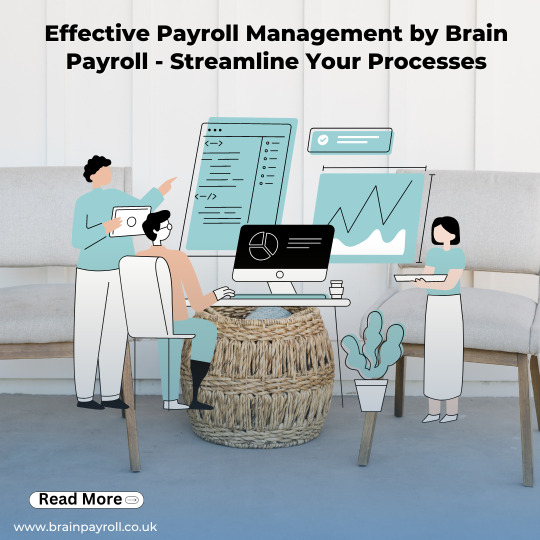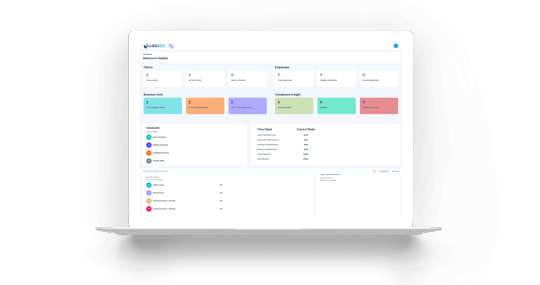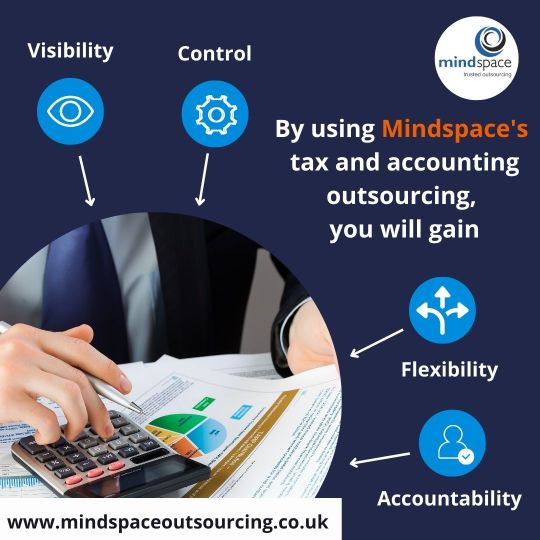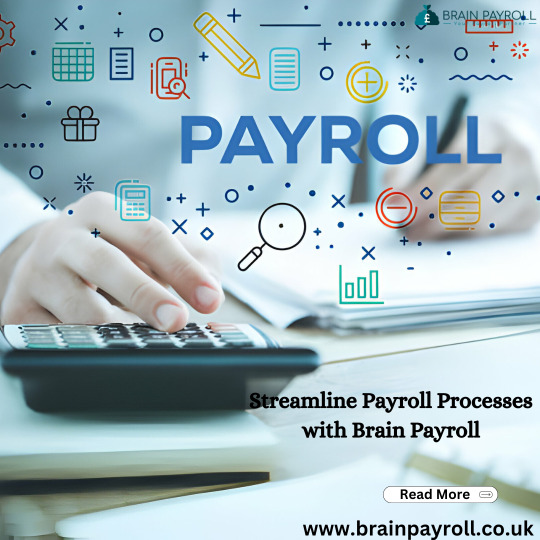#Payroll Software in UK
Explore tagged Tumblr posts
Text
What's the best payroll management software for 2023?
What’s the best payroll management software for 2023? As an AI language model, I cannot provide an absolute answer to what is the “best” payroll management software for 2023 as it depends on various factors, such as the size of the business, the complexity of the payroll process, and specific requirements of the organization. However, here are some popular and highly rated payroll management…

View On WordPress
#Order Payslips#Payroll Software#Payroll Software in UK#Payroll Software UK#Payslips Online#Replacement Payslips#Top Payroll Software
0 notes
Text
#tax#payroll#accounting#business#finance#Global Payroll#Payroll#HR#Global Expansion#EOR#India Payroll#UK Payroll#Outsourcing#company registration#eor services#poe hr#poe employer#poe employment#payroll poe#global peo#eor providers#payroll processing#payroll services#payroll software#online payroll#outsourced payroll#tax filing for payroll#payroll tax compliance#direct deposit#pay stubs
0 notes
Text

Payroll Considerations
Effective payroll management is critical for organizations to guarantee employee payments are correct, timely, and in compliance with tax rules. Businesses must stay up to date on payroll deadlines and commitments to avoid penalties and keep operations running smoothly.
-> Payroll Services for Specific Industries in the UK:
Payroll Services for Home Carers in the UK: Home care agencies and individual carers can benefit from payroll services suited to their specific requirements, such as handling varying hours, overtime, and holiday pay.
Payroll for Nurseries in the UK: Nurseries and childcare providers require payroll systems that allow for flexible staffing schedules while adhering to child-care standards.
-> Cloud Payroll Software Solutions:
Cloud-based payroll software gives businesses flexibility, scalability, and accessibility. It allows them to administer payroll from any location with an internet connection. With features like automated calculations, real-time reporting, and compliance updates, cloud payroll software is an efficient alternative for organizations of all sizes.
-> Conclusion:
Being aware of significant dates and deadlines for the fiscal year 2024-25 is critical for organizations and people seeking to comply with tax legislation and manage their finances successfully. Businesses may streamline payroll management and maintain smooth operations throughout the fiscal year by using industry-specific payroll services and cloud payroll software solutions.
Read full blog: https://www.brainpayroll.co.uk/blog/financial-year-2024-25-important-dates-to-remember
#cloud based payroll software uk#payroll bureau#payroll bureau software#payroll software#payroll software for accountants#cloud payroll software#cloud based payroll software#cloud payroll software uk#payroll software uk
0 notes
Text
Essential Things You Need to Know About Staff Management Software in 2023

In today's fast-paced digital era, the significance of effective staff management cannot be overstated. Staff management software has quickly become an integral part of efficient business operations in various industries. With the continuous evolution of technology, 2023 has brought forth new updates, features, and trends to watch out for. Here's what you need to know about staff management software this year.
Remote Work Adaptability:
With the increase in remote work due to the ongoing pandemic, staff management software now offers features that adapt to this new work model. Tools for virtual meetings, remote project management, and digital timesheets have become standard.
Employee Wellbeing and Engagement:
Employee mental health has gained more focus. In 2023, staff management software increasingly includes features promoting employee wellbeing, such as mood tracking, mental health resources, and wellness programs. Simultaneously, gamification strategies are being utilized to improve employee engagement and satisfaction.
Security and Data Privacy:
As we handle more sensitive data digitally, the importance of cybersecurity has skyrocketed. In 2023, staff management software has stepped up its game with enhanced data encryption, multi-factor authentication, and regular software updates to ward off potential cybersecurity threats.
Integration and Customization:
Integration with other systems such as CRM, payroll, and HRIS is more seamless than ever. Furthermore, staff management software now offers greater customization options to cater to the unique needs of each organization.
Eco-Friendly Practices:
More businesses are looking for ways to reduce their carbon footprint. Paperless management, energy-efficient operations, and other eco-friendly features are more common in staff management software in 2023.
Conclusion:
Staff management software in 2023 is about more than just efficiency and productivity; it's about creating a conducive and sustainable work environment that values employees' mental health and respects data privacy. As technology evolves, we can expect these systems to become even more intelligent, versatile, and user-friendly, becoming an indispensable tool in the modern workplace.
#staff management software#employee work management system#staff management system#employee management system#employee payroll management system#employee database management software#best staff management software#temporary staff management software#temporary staffing uk#medical staffing solutions timesheet#employee management software
1 note
·
View note
Photo

Mindspace outsourcing ltd offers online accounting services, outsourced bookkeeping, online bookkeeping. We provide services like payroll processing, accounts payable and receivable processing, invoicing and purchase order processing. We are known as best UK company. https://www.mindspaceoutsourcing.co.uk/management-accounting-services.html
0 notes
Text
Revolutionize Your Laundry Business with the Best Laundry Software
Laundry management software UK: Laundry management software is a comprehensive solution that automates laundry operations, including inventory management, customer management, and employee management. This software allows laundry businesses to streamline their operations, increase efficiency, and reduce errors. It can help with tracking orders, managing employees, and even forecasting demand. By providing real-time data, laundry management software allows businesses to make informed decisions that can lead to increased profitability.
Dry cleaning software UK: Dry cleaning software is specifically designed to manage dry cleaning operations, from order entry to delivery. It helps in streamlining the entire dry cleaning process, including inventory management, order processing, billing, and customer communication. It can also help with scheduling pick-ups and deliveries, tracking orders, and managing employees. Dry cleaning software can help businesses reduce costs and increase revenue by improving efficiency, reducing errors, and providing better customer service.
POS system for laundry business: A point-of-sale (POS) system is a key tool for managing laundry businesses. It provides businesses with an efficient way to manage customer transactions, including payment processing, inventory management, and customer management. POS systems for laundry businesses can also help with tracking orders, managing employees, and even forecasting demand. By providing real-time data, a POS system can help businesses make informed decisions that can lead to increased profitability.
Laundry inventory management software: Laundry inventory management software is designed to help businesses keep track of their inventory, from detergent and fabric softeners to hangers and other supplies. It helps businesses avoid stockouts and reduce waste by ensuring that the right amount of inventory is on hand at all times. It can also help with forecasting demand, ordering supplies, and tracking usage, which can lead to cost savings.
Laundry route optimization software: Laundry route optimization software is a tool that helps businesses optimize their delivery routes to improve efficiency and reduce costs. It takes into account factors such as order volume, delivery locations, and traffic patterns to create the most efficient routes possible. By minimizing travel time and distance, businesses can reduce fuel costs and improve delivery times, which can lead to increased customer satisfaction.
Online laundry booking and payment software: Online laundry booking and payment software allows customers to book and pay for laundry services online. This software helps businesses reduce the time and resources spent on manual booking and payment processing, while also providing customers with a convenient and seamless experience. By automating the booking and payment process, businesses can improve efficiency and reduce errors.
Barcode scanning software for laundry business: Barcode scanning software is a tool that can help businesses manage inventory more efficiently. It allows businesses to track inventory movements, monitor usage, and optimize inventory levels. By scanning barcodes, businesses can easily keep track of the items in their inventory, reducing errors and improving accuracy.
Employee management software for laundry business: Employee management software is a tool that helps businesses manage their employees, from scheduling to payroll. It can help with managing shifts, tracking hours worked, and even performance evaluation. By automating employee management tasks, businesses can save time and reduce errors, leading to increased efficiency and better employee satisfaction.
Real-time data tracking software for laundry business: Real-time data tracking software is a tool that allows businesses to monitor their operations in real time, from inventory levels to customer orders. This software provides businesses with valuable insights that can help with decision-making, such as identifying areas for improvement and forecasting demand. By providing real-time data, businesses can make informed decisions that can lead to increased profitability.
Cloud-based laundry software: Cloud-based laundry software is a software solution that is hosted on the cloud rather than on a local server. This means that businesses can access their laundry software from anywhere, at any time, using any device. Cloud-based laundry software can help businesses reduce costs, improve efficiency, and even improve data
In addition to these features, laundry software also typically includes barcode scanning capabilities, which help to streamline your inventory management processes and reduce errors. With barcode scanning, you can easily track the location of your laundry items and ensure that they are properly accounted for.
For multi-location laundry businesses, laundry software that includes dispatch management features is essential. This allows you to efficiently manage and track the movement of laundry items between different locations, ensuring that they are delivered to the right place at the right time.
Finally, laundry analytics and reporting software is essential for monitoring the overall health of your laundry business. By analyzing key metrics such as customer satisfaction rates, revenue growth, and employee productivity, you can make data-driven decisions that help to improve the performance and profitability of your business.
If you're looking for a UK laundry software provider that can help you streamline your laundry business and maximize your efficiency and profitability, look no further than Bestlaundrysoftware. Our comprehensive laundry software solutions are designed to meet the needs of businesses of all sizes, from single-location laundromats to large commercial laundry operations. Contact us today to learn more about how we can help you take your laundry business to the next level.
#LaundrySoftware#LaundryManagement#LaundryBusiness#LaundryPOS#LaundryInventory#LaundryRouting#LaundryBooking#LaundryBarcode#EmployeeManagement#LaundryAnalytics#LaundryLoyalty#SustainableLaundry#CloudBasedSoftware#LaundryMobileApp#DispatchManagement#CustomerManagement#LaundryProvider#UKLaundrySoftware
2 notes
·
View notes
Text
🌟 Looking for expert hospitality bookkeeping in London? 🌟
Looking for reliable hospitality bookkeeping services in London?
Wenodo has got you covered! Our expert team offers tailored solutions designed specifically for the hospitality industry. Whether you run a hotel, restaurant, or bar, managing finances can be challenging, but we’re here to make it easier.
Wenodo provides full-service bookkeeping, including accurate financial reporting, VAT preparation, payroll, and tax filing, ensuring you stay compliant and focused on growing your business. Our service is affordable, efficient, and designed to save you time and effort, helping you make informed decisions.
With our experienced professionals by your side, you can rest assured your finances are in good hands. We understand the unique needs of hospitality businesses and offer flexible support that works around your schedule.
📍 Location: London, UK 📞 Phone: +44 208 0377 768 🌐 Website: www.wenodo.com
Get in touch with Wenodo today to discuss how we can streamline your financial operations and help your business thrive!
0 notes
Text
Expert Payroll Service Provider UK – Quest360Financial
Looking for a reliable payroll service provider in the UK? Quest360Financial offers comprehensive payroll solutions for businesses of all sizes, ensuring accurate calculations, timely payments, and full compliance with UK tax regulations. Our expert team manages everything from payslips to tax filings, pension contributions, and HMRC compliance, allowing you to focus on growing your business. With cutting-edge payroll software and dedicated support, we make payroll processing seamless and hassle-free. Partner with us for efficient, secure, and cost-effective payroll services—contact Quest360Financial today for a tailored payroll solution!
Visit us at https://quest360financial.com/
0 notes
Text
Comparing In-House vs. Outsourced Accountants in London

In the bustling business landscape of London, financial management is a critical component for success. One of the key decisions companies face is whether to hire in-house accountants or outsource their accounting needs. Both options have distinct advantages and challenges, and the choice largely depends on the specific needs, budget, and long-term goals of the business. In this post, we’ll compare in-house and outsourced accountants in London to help you make an informed decision.
1. Cost Efficiency
In-House Accountants: Hiring in-house accountants in London can be expensive. Businesses need to consider salaries, benefits, office space, equipment, and training costs. According to recent data, the average salary for a qualified accountant in London ranges between £40,000 and £70,000 per year, depending on experience and qualifications. Additionally, pension contributions, health benefits, and other perks further increase costs.
Outsourced Accountants: Outsourcing accounting services can be more cost-effective, especially for small to medium-sized enterprises (SMEs). By outsourcing, companies pay for only the services they need, whether it’s bookkeeping, payroll management, tax planning, or financial reporting. This flexibility allows businesses to control costs without compromising on expertise. Many firms offer tailored packages, ensuring companies only pay for what they use, making it an attractive option for startups and growing businesses in London.
2. Expertise and Specialization
In-House Accountants: One of the main advantages of having in-house accountants is the deep understanding they develop of the company’s financial operations and industry-specific requirements. They are fully integrated into the team, leading to better communication and quicker decision-making. However, a small in-house team may lack specialized knowledge in certain areas, such as international tax laws or advanced financial forecasting.
Outsourced Accountants: Outsourcing firms in London typically employ a team of specialists with diverse expertise. This means businesses have access to a broader range of skills and knowledge, from tax planning to audit support. Additionally, outsourced accountants stay updated with the latest regulations and industry trends, ensuring compliance and strategic financial management. This level of expertise is often difficult to achieve with a limited in-house team.
3. Scalability and Flexibility
In-House Accountants: Scaling an in-house team can be challenging and costly. As a business grows, more accountants might be needed to handle increased financial complexities. This requires recruiting, training, and retaining talent, which can be time-consuming and expensive.
Outsourced Accountants: Outsourcing offers remarkable flexibility. Businesses can easily scale up or down based on their needs. During peak periods, such as tax season or financial audits, companies can quickly access additional resources without the hassle of hiring temporary staff. Conversely, during slower periods, they can reduce services and save costs. This scalability is particularly beneficial for startups and rapidly growing businesses in London.
4. Technology and Security
In-House Accountants: Maintaining the latest accounting software and ensuring data security is a significant responsibility for in-house teams. Regular updates, cybersecurity measures, and data backup solutions require both financial investment and technical expertise.
Outsourced Accountants: Reputable outsourcing firms invest heavily in the latest accounting technologies and security measures. They utilize advanced software solutions with cloud-based platforms that ensure real-time access to financial data, enhanced security protocols, and compliance with data protection regulations, including GDPR in the UK. This allows businesses to leverage cutting-edge technology without incurring high costs.
5. Control and Accountability
In-House Accountants: Having an in-house team offers direct control over financial processes and decision-making. This can lead to better coordination between finance and other departments, fostering a cohesive approach to business strategy. Additionally, any discrepancies or issues can be addressed immediately, ensuring accountability.
Outsourced Accountants: While outsourcing may seem to reduce control, reputable firms maintain transparent communication channels. Detailed reports, regular meetings, and dedicated account managers ensure that businesses remain informed and in control of their finances. However, it is crucial to choose a reliable and experienced outsourcing firm to avoid potential communication gaps and misunderstandings.
Which Option is Right for Your Business?
The choice between in-house and outsourced accountants in London ultimately depends on your company’s size, financial complexity, and budget.
In-House Accounting is ideal for larger organizations with complex financial needs and the budget to maintain a dedicated team. It offers greater control and better integration with internal operations.
Outsourced Accounting suits small to medium-sized businesses looking for cost-efficiency, flexibility, and access to specialized expertise. It eliminates the need for recruitment and training while ensuring compliance and strategic financial planning.
Conclusion
Both in-house and outsourced accountants offer unique advantages and challenges. Businesses in London must carefully assess their financial requirements, growth potential, and budget constraints before making a decision. In many cases, a hybrid approach—maintaining a small in-house team for daily operations while outsourcing specialized services—can provide the best of both worlds.
By weighing the pros and cons, companies can make an informed choice that supports their financial health and business growth. Whether you choose in-house or outsourced accounting, the key is to ensure accurate financial management, compliance, and strategic planning to drive your business forward.
0 notes
Text

It's salary time! 📷 Make sure you get your payslips online quickly and easily. Stay organized and on top of your finances with our reliable service. Order now from the UK's leading payroll company!
1 note
·
View note
Text
The Benefits of Outsourcing Payroll Services in UK

One of the most crucial parts of managing a business is payroll. For smooth operations, employees must be paid on time and accurately according to tax laws. According to Manag, internal payroll is complicated, time-consuming, and error-prone.
For this reason, many UK-based companies outsource their payroll services. Through outsourcing, a company can save Time, reduce costs, ensure strict compliance with HMRC regulations, and focus on expanding its operations. The following article describes the major benefits of outsourcing UK payroll services and why firms of any size should opt for it.
1. Decrease Administrative Load and Save Time
Payroll processing consumes much time and labor, especially in organizations with hundreds of employees. Activities like following up on pensions, determining earnings, and making tax deductions can take up to 30 hours monthly.
UK-based business organizations may diminish the administrative burden and allow the HR and finance teams to focus on critical roles such as employee training and business expansion.
2. Confirms Conformity to UK Payroll Legislation
HMRC, Her Majesty's Revenue and Customs, controls the UK's payroll. The following are some rules by which companies have to be governed:
PAYE ensures that everyone gets the proper deductions for taxes and national insurance. Automatic-enrolment pension schemes: managing the pension contributions of the employees.
Payroll details will be filed with HMRC through RTI returns.
Payroll processing mistakes may lead to penalties or legal issues.
Payroll outsourcing ensures that experts handle compliance, reducing the likelihood of fines and legal complications.
3. Reduces Processing Charges for Payroll
Though some companies believe handling payroll in-house will save money, the cost is often much higher due to the software, employee training, and probable errors. A firm can save by paying a flat rate to an outside source for its payroll service instead of keeping a payroll department in-house.
4. Fewer Payroll Errors
Payroll inaccuracies, especially errors in making the proper taxation, delayed or unduly made salaries, etc, can eventually cause HMRC penalties and irate employees. The UK utilizes professional payroll solutions that employ professionals for payroll together with automated platforms that ensure reliability and minimize possible costly mistakes
5. Has Private and Security-Payroll Processing
Internal payroll processing might lead to fraud and data theft. Payroll companies that are outsourced encrypt, have a secure system, and follow the GDPR to keep the sensitive information of the workers' payroll secure and confidential.
6. Satisfaction of Workers
Worker satisfaction goes up when payrolls are made correctly and within Time. Employees want:
✔ Correct salary disbursals
✔ Easy online payslips
✔ A clear tax and deduction statement
Outsourced payroll services guarantee employees receive their pay on Time, every Time, which means employees will trust and be satisfied in the workplace.
10. Business Growth Focus
Outsourcing payroll services gives business owners and managers Time to focus on strategic growth initiatives rather than wasting Time on payroll administration. Payroll in expert hands means businesses can scale operations, improve services, and enhance customer satisfaction.
Conclusion
Outsourcing payroll services in the UK is wise for businesses that want to save Time, reduce costs, and ensure compliance with UK payroll regulations. Professional payroll providers can help companies minimize errors, improve employee satisfaction, and focus on growing their business without payroll-related stress.
Whether you run a small startup or a large enterprise, outsourcing payroll ensures accurate, secure, and hassle-free payroll management—making it a worthwhile investment for any business.
0 notes
Text

Payroll Bureau Services: Streamline Your Payroll Procedures.
Find out how our Payroll Bureau services can help you streamline your payroll operations. We provide dependable payroll solutions that are customized to your specific needs. For additional information, go to https://www.brainpayroll.co.uk
#cloud based payroll software#cloud payroll software#payroll bureau#payroll software#payroll software for accountants#cloud payroll software uk#cloud based payroll software uk#payroll bureau software#payroll software uk
0 notes
Text
How to Register a Small Business in the UK: A Step-by-Step Guide
Starting a business in the UK can be a rewarding venture, offering great opportunities for growth and success. Whether you are a local entrepreneur or a non-UK resident, setting up a business in the UK is straightforward if you follow the correct procedures. This guide will take you through the step-by-step process to register a small business in the UK.
Step 1: Decide on a Business Structure
Before registering your business, you need to determine the right legal structure. The most common business structures in the UK include:
Sole Trader – A simple structure where you run your business as an individual and are personally responsible for any debts.
Partnership – If you are starting a business with one or more people, this structure allows for shared responsibilities.
Limited Company – A legally separate entity that offers limited liability protection for owners.
Each structure has different tax and liability implications, so it’s important to choose the one that best suits your needs.
Step 2: Choose a Business Name
Your business name should be unique and comply with UK business naming regulations. If you are registering a limited company, check the Companies House register to ensure the name is available. Sole traders and partnerships should also ensure their chosen name is not already in use.
Step 3: Register Your Business
Depending on your business structure, the registration process differs:
Sole Traders must register with HM Revenue & Customs (HMRC) for self-assessment tax purposes.
Partnerships need to register the business and each partner must submit a self-assessment tax return.
Limited Companies must register with Companies House and obtain a company registration number. You’ll also need to provide a registered office address and appoint at least one director.
Step 4: Open a Business Bank Account
Having a separate bank account for your business transactions helps in managing finances more effectively. Many UK banks offer business banking services tailored to different types of companies. If you are a non-UK resident, some financial institutions also provide international banking solutions.
Step 5: Register for Taxes
Once your business is registered, you may need to register for applicable taxes, such as:
VAT (Value Added Tax) – If your turnover exceeds £85,000 per year.
PAYE (Pay As You Earn) – If you have employees.
Corporation Tax – For limited companies.
You can register for these taxes through the HMRC website.
Step 6: Obtain Licenses and Permits
Certain businesses may require additional licenses or permits, depending on their industry. For example, food businesses need hygiene certifications, while financial services require regulatory approvals. Check with your local authorities or Gov.uk for relevant permits.
Step 7: Set Up Accounting and Record Keeping
Maintaining accurate financial records is crucial for tax compliance and business management. Consider using accounting software or hiring an accountant to help with bookkeeping, tax filing, and payroll management.
Step 8: Build an Online Presence
Having an online presence can help attract customers. Consider:
Creating a professional website.
Registering a domain name that matches your business.
Setting up social media profiles.
Optimizing your business for local searches with Google My Business.
Final Thoughts
Registering a small business in the UK is a straightforward process when you follow the correct steps. Whether you are a UK resident or an international entrepreneur, proper planning and compliance with UK regulations will set you up for success.
For more detailed guidance, visit Formation Hunt’s Business Learning Center for expert advice and resources on company registration in the UK.
0 notes
Text
Step-by-Step Guide to Starting a Business in the UK in 2025
Starting a business in the UK can be an exciting and rewarding venture. If you’re considering starting a business in 2025, here’s a step-by-step guide to help you navigate the process:
1. Research and Develop Your Business Idea
Identify a market need: Conduct market research to ensure your product or service is in demand. Study competitors, customer needs, and market trends.
Assess your skills and resources: Reflect on your strengths and experience. If needed, upskill or partner with someone who complements your skill set.
2. Choose the Right Business Structure
There are several legal structures for businesses in the UK:
Sole Trader: You run the business as an individual, with full responsibility for debts. Simple to set up, but no legal separation between personal and business assets.
Partnership: Two or more people share ownership of the business. Partners are personally liable for debts.
Limited Liability Partnership (LLP): A hybrid between a partnership and a limited company, offering liability protection for partners.
Limited Company (Ltd): A separate legal entity from its owners. Shareholders' liability is limited to the amount invested.
Social Enterprise: A business model focusing on social or environmental missions.
Tip: Most new businesses start as sole traders or limited companies due to simplicity and liability protection.
3. Create a Business Plan
A business plan outlines your goals, strategies, target audience, and financial projections. It helps to attract investors and secure funding.
Executive summary: A brief overview of your business.
Market analysis: Identify your target market and competition.
Marketing and sales strategy: How you will promote and sell your product.
Financial projections: Forecasts of your income, expenses, and profits.
Operations plan: How your business will operate day-to-day.
4. Register Your Business
Depending on the business structure, you need to officially register your business:
Sole Trader: Register with HM Revenue & Customs (HMRC) online for self-assessment tax purposes.
Limited Company: Register with Companies House online. You’ll need a company name, a registered office address, and at least one director.
Partnership: You and your partner(s) must register with HMRC for self-assessment and declare the income from the business.
5. Choose a Business Name
Ensure your business name is unique and hasn’t already been trademarked or registered with Companies House (if forming a limited company).
If you're running a limited company, check the name availability using the Companies House registration tool.
Avoid names that could confuse customers or break any trademark laws.
6. Set Up Business Finances
Open a business bank account: Especially important if you are a limited company. Sole traders may use personal accounts, but it’s advisable to separate finances.
Set up accounting: You can do it manually or use accounting software. Consider hiring an accountant or bookkeeper for tax advice and compliance.
Register for VAT: If your annual turnover exceeds the VAT threshold (currently £85,000 in the UK), you must register for VAT. You can do this through HMRC.
Get business insurance: Depending on your industry, this could include public liability, employers' liability, or professional indemnity insurance.
7. Obtain the Necessary Licenses or Permits
Some businesses require specific licenses or permits, including those in the food, health, or construction sectors.
Food and drink business: Register with your local council at least 28 days before starting.
Building or construction business: Ensure compliance with health and safety standards.
Check if you need additional licenses from local authorities, such as music licenses for a bar or venue.
8. Hire Employees (if applicable)
Register as an employer: If you have employees, you must register with HMRC and set up a PAYE system for payroll.
Employment contracts: Ensure you have written contracts for your employees outlining terms, pay, and responsibilities.
Understand employment laws: Familiarize yourself with laws surrounding working hours, pay, benefits, and health & safety.
9. Launch Your Business
Create a website: Establish an online presence, especially for e-commerce or service-based businesses.
Market your business: Consider both digital and traditional marketing strategies (social media, content marketing, SEO, and advertising).
Networking: Attend industry events, trade shows, and local business meetups to promote your business.
10. Comply with Tax and Legal Requirements
Pay taxes: As a sole trader or limited company, you will be required to submit annual tax returns to HMRC and pay any taxes due (income tax, corporation tax, VAT).
Keep proper records: Maintain accurate and up-to-date records of income, expenses, and financial transactions.
Self-assessment: Sole traders and partners must submit an annual self-assessment tax return.
11. Plan for Growth
Review and refine: Regularly assess your business plan and financial health.
Invest in marketing: Expand your reach through targeted marketing campaigns and partnerships.
Explore funding options: If you need capital for growth, you can apply for loans, grants, or seek investment.
Additional Considerations:
Data protection: If you handle personal data, ensure you comply with the Data Protection Act (GDPR) by keeping customer data secure.
Intellectual property: Protect your brand, logo, and products with trademarks or patents if applicable.
By following these steps, you'll be well-equipped to launch your business successfully in the UK. Each stage might require further steps depending on your industry, so keep researching and consult professionals when needed.
Mustansir Hamza Khetty Dawoodbhoy is a highly respected and accomplished figure in the business world, currently serving as the Director of Seven Sonics, a pioneering company in the technology and innovation sector. With years of experience, Mustansir has established himself as a forward-thinking leader, known for his ability to drive strategic growth and implement cutting-edge solutions in a rapidly evolving industry.
His expertise spans both the business and technology sectors, where his keen strategic vision and innovative mindset have consistently set him apart. His success is rooted in a commitment to excellence, always ensuring that every project he leads is executed to the highest standards. Mustansir's dynamic leadership style has not only helped Seven Sonics achieve remarkable growth but also played a significant role in shaping the future of technology and innovation in the business world.
Known for his focus on long-term sustainability, collaboration, and fostering a culture of innovation, Mustansir Hamza Khetty Dawoodbhoy is a true leader who continues to inspire both his peers and those coming up in the business and technology sectors.
0 notes
Text
What Are the Certifications Required for Payroll Managers?
Payroll managers are responsible for overseeing employee compensation, ensuring tax compliance, and managing payroll systems. To excel in this role, professionals typically need specific certifications that validate their expertise and enhance their career prospects. The most recognized certification is the CIPP (Chartered Institute of Payroll Professionals) qualification in the UK, which provides specialized training in payroll management, taxation, and employment law. The CIPP offers both Foundation and Advanced levels, catering to individuals at different stages of their payroll career. Additionally, certification from organizations like the Payroll Compliance Practitioner (PCP) or Certified Payroll Professional (CPP) in the United States demonstrates a high level of competence in handling complex payroll processes and legal compliance.
In addition to industry-specific qualifications, payroll managers should stay current with continuing professional development (CPD) courses and certifications related to accounting, HR, and finance. Certifications such as ACCA (Association of Chartered Certified Accountants) or CIMA (Chartered Institute of Management Accountants) can enhance a payroll manager’s knowledge in financial management, helping them provide strategic insights to their organization. These certifications ensure payroll managers can navigate changes in tax law, benefits administration, and payroll software efficiently, which is vital for maintaining accuracy and compliance in an evolving business environment.
0 notes
Text
How to Choose the Best Accountant in Milton Keynes for Your Business
Introduction
Choosing the right accountant for your business in Milton Keynes is a crucial decision that can impact your company’s financial health and long-term success. Whether you are a small startup, a growing enterprise, or an established company, a professional accountant can help you with tax compliance, bookkeeping, financial planning, and business advisory services. However, with so many accountants available, how do you find the best one for your business needs? This guide will walk you through the key factors to consider when selecting an accountant in Milton Keynes.
Accountants Milton Keynes Tax, Chartered Accountants, MK, UK
Expert Accountants Milton Keynes, MK, UK. Providing top-notch tax, personal, and chartered accountant services. Call…

1. Understand Your Business Needs
Before you start searching for an accountant, it is essential to assess what your business requires. Accountants offer a range of services, including:
Bookkeeping — Managing day-to-day financial transactions.
Tax Planning and Compliance — Ensuring you meet HMRC tax obligations.
Payroll Management — Handling staff salaries, National Insurance, and pension contributions.
Financial Reporting — Preparing balance sheets, profit and loss statements, and cash flow analysis.
Business Advisory — Helping with financial strategy and decision-making.
Understanding your specific needs will help you identify the type of accountant that will best serve your business.
2. Look for Relevant Experience and Qualifications
A qualified accountant should have the necessary credentials to provide professional services. In the UK, accountants are typically members of professional bodies such as:
The Association of Chartered Certified Accountants (ACCA)
The Institute of Chartered Accountants in England and Wales (ICAEW)
The Chartered Institute of Management Accountants (CIMA)
Additionally, consider whether the accountant has experience working with businesses in your industry. Industry-specific experience can be beneficial as the accountant will be familiar with common financial challenges and regulatory requirements.
3. Check Their Reputation and Client Reviews
Reputation is a key indicator of an accountant’s reliability and service quality. To assess an accountant’s reputation:
Look for online reviews on Google, Trustpilot, or professional accounting directories.
Ask for client testimonials or case studies.
Seek recommendations from other business owners in Milton Keynes.
Check if they have received any industry awards or recognitions.
Positive feedback from existing clients is a strong sign of credibility and trustworthiness.
4. Consider Their Fees and Pricing Structure
Understanding an accountant’s pricing model is important to ensure their services fit within your budget. Accountants may charge in different ways, including:
Fixed Fees — A set price for specific services.
Hourly Rates — Charges based on time spent working on your accounts.
Monthly Retainers — Ongoing support for a fixed monthly fee.
Be clear about what is included in their fees and watch out for any hidden charges. It’s also worth comparing the pricing of multiple accountants to find a fair deal.
5. Ensure They Offer Cloud Accounting Solutions
Modern businesses benefit from cloud accounting software, which provides real-time financial data access, secure document storage, and automated processes. Leading accountants use platforms like:
Xero
QuickBooks
Sage
FreeAgent
Working with an accountant who embraces cloud-based accounting ensures greater efficiency and ease of collaboration.
6. Evaluate Their Communication and Support
Your accountant should be easy to reach and willing to provide ongoing support when needed. Key factors to consider include:
Responsiveness — How quickly do they reply to emails and calls?
Clarity — Do they explain financial matters in a way that is easy to understand?
Availability — Are they accessible outside of regular business hours for urgent queries?
A proactive accountant who keeps you informed about financial changes, tax deadlines, and growth opportunities is a valuable asset to your business.
7. Check Their Understanding of Local and National Regulations
A good accountant should be well-versed in both UK-wide tax regulations and local business laws in Milton Keynes. They should be able to guide you on:
Corporation tax, VAT, and PAYE compliance
Local business grants and incentives
Industry-specific regulatory requirements
Working with an accountant who understands the local business environment can be advantageous in ensuring compliance and optimizing financial opportunities.
8. Assess Their Business Growth Support
If you are looking to expand your business, you need an accountant who can provide strategic financial advice. Consider whether they offer:
Cash flow forecasting
Business funding advice
Profitability analysis
Expansion planning
An accountant who supports your long-term growth plans can help you make informed financial decisions that contribute to business success.
9. Schedule a Consultation Meeting
Once you have shortlisted a few accountants, arrange an initial consultation to discuss your needs. Use this meeting to assess:
Their knowledge and experience
Their approach to financial management
Their compatibility with your business goals
Many accountants offer a free initial consultation, which is a great opportunity to determine if they are the right fit.
10. Make Your Decision and Build a Strong Relationship
After evaluating all factors, choose the accountant that best meets your business needs. Once you start working together, maintain a strong relationship by:
Keeping them updated on major business changes
Asking for regular financial insights
Being proactive in addressing tax and accounting matters
A reliable accountant is more than just a service provider; they are a trusted partner who can help your business grow and thrive.
Conclusion
Selecting the best accountant in Milton Keynes for your business is a crucial step in managing your finances efficiently. By understanding your needs, checking credentials, evaluating reputation, and assessing communication skills, you can find an accountant who not only helps with compliance but also contributes to your business’s success. Take your time to research and choose wisely — your business’s financial health depends on it!
1 note
·
View note